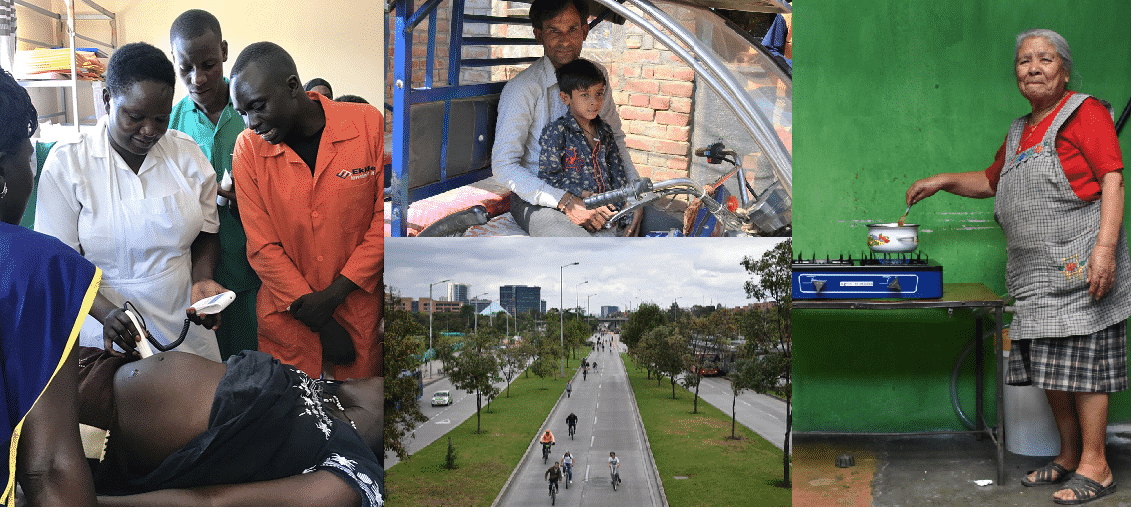Applications open: 4 Nov 2019
Applications close: 11 Dec 2019
We have just a few years to avert climate catastrophe, and every wasted month makes the challenge ahead far more difficult. Failed energy systems of the past have left 840 million people without access to electricity, and the rest heavily reliant on a fossil fuel burning, carbon-heavy grid.
Over the next 7 weeks we will be scouring the planet for some of the most exciting projects and organisations working to make people’s lives better by decarbonising the way we live.
What kind of projects are we looking for?
- Energy Access Finance or Business Model Innovation: policy, planning and public/private partnerships that opens up the market for smaller enterprises to succeed.
- Sustainable buildings: from new build to retrofit, we need to decarbonise our homes and offices worldwide.
- Nature-based solutions: we want to hear from projects using natural solutions to protect people and planet, and are especially interested in projects run by and benefitng indigenous people.
- Clean Air and Sustainable Mobility: Infrastructure, policies and developments that discourage car use, integration to the last mile and behaviour change.
- Humanitarian energy: We want to hear about energy access responses to humanitarian disasters.Climate change is already worsening these situations, and the impact will grow in the years ahead.
- Innovation: In the UK our electricity supply has seen leaps in decarbonisation, whilst heating and cooking still lag behind – cost and disruption are key barriers we want to see addressed.
- Cool Cities: This award focuses on how cities can adapt to rising temperatures by using passive cooling approaches as part of the built environment.
- Livelihoods: Electricty opens many doors to income and employment, but access to raw materials and training are still lacking.
- Energy Access Policy, Planning & Finance: Systemic change is needed if we are to achieve universal access to modern, clean and affordable energy by 2030, with particular attention to the hardest to reach.
Find out more, see the full criteria and apply.
This article was originally published on the Ashden website and can be accessed here.







